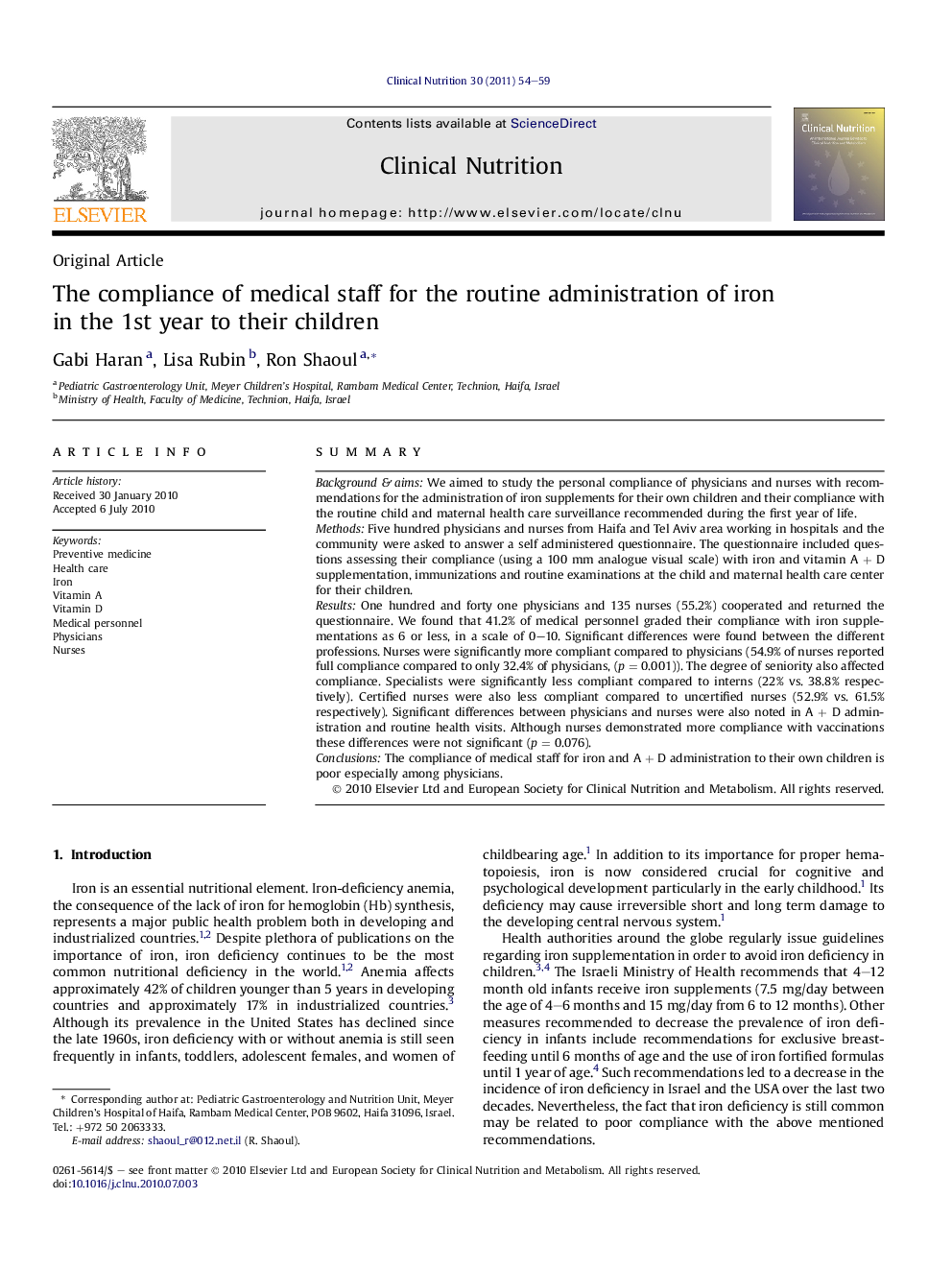| Article ID | Journal | Published Year | Pages | File Type |
|---|---|---|---|---|
| 2684184 | Clinical Nutrition | 2011 | 6 Pages |
SummaryBackground & aimsWe aimed to study the personal compliance of physicians and nurses with recommendations for the administration of iron supplements for their own children and their compliance with the routine child and maternal health care surveillance recommended during the first year of life.MethodsFive hundred physicians and nurses from Haifa and Tel Aviv area working in hospitals and the community were asked to answer a self administered questionnaire. The questionnaire included questions assessing their compliance (using a 100 mm analogue visual scale) with iron and vitamin A + D supplementation, immunizations and routine examinations at the child and maternal health care center for their children.ResultsOne hundred and forty one physicians and 135 nurses (55.2%) cooperated and returned the questionnaire. We found that 41.2% of medical personnel graded their compliance with iron supplementations as 6 or less, in a scale of 0–10. Significant differences were found between the different professions. Nurses were significantly more compliant compared to physicians (54.9% of nurses reported full compliance compared to only 32.4% of physicians, (p = 0.001)). The degree of seniority also affected compliance. Specialists were significantly less compliant compared to interns (22% vs. 38.8% respectively). Certified nurses were also less compliant compared to uncertified nurses (52.9% vs. 61.5% respectively). Significant differences between physicians and nurses were also noted in A + D administration and routine health visits. Although nurses demonstrated more compliance with vaccinations these differences were not significant (p = 0.076).ConclusionsThe compliance of medical staff for iron and A + D administration to their own children is poor especially among physicians.
